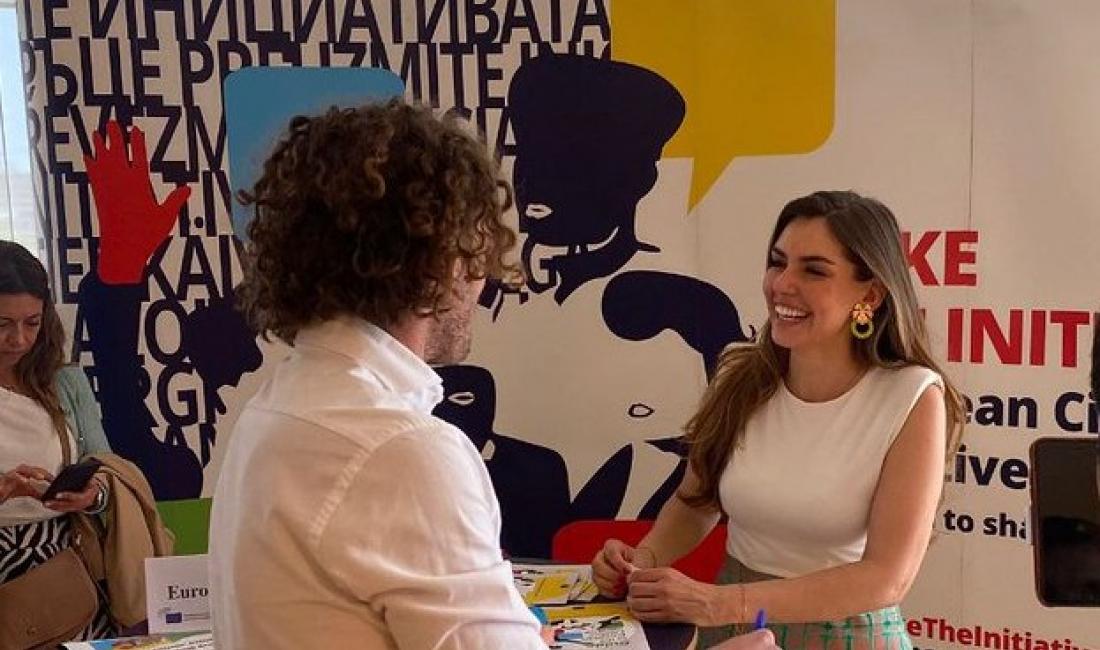Democracy International has been working on strengthening the European Citizens’ Initiative (ECI) for over 11 years - that is as long as the ECI has been in existence because we have been there since day one. For over three years, Democracy International has worked with its partner European Citizens’ Action Service on producing content and assisting ECI organisers via the ECI Forum.
And last year was an especially successful year for the ECI. Four ECIs reached or verified the minimum one million signature requirement, making it the most successful year for the ECI in history.
But there’s more exciting news for the ECI. Over the summer, the European Parliament made a groundbreaking move: it has adopted the most ambitious institutional report on the ECI published so far. It tackles the ECI’s most urgent topics including political follow-up, visibility, its youth dimension, the costs to run an ECI, and more.
The European Parliament's recent report on the ECI is not just a step in the right direction; it's a leap towards a more inclusive, responsive, and vibrant European democracy. Here's a sneak peek at some of the most exciting proposals from this ambitious report. For the full report, read here.
- Connecting ECIs with European Citizens’ Panels (ECPs): The ECPs so far have suffered from a top-down approach, and questions have surfaced regarding their topic selection. On the other hand, the ECI is often criticised for its slow or weak political follow-up but praised for its potential in sparking debates on EU-wide issues. So imagine a world where ECIs and European Citizens' Panels join forces. The top-down approach to ECP topic selection, meets the grassroots power of ECIs. This partnership promises to be a match made in democratic heaven.
- A progressive financing scheme for ECIs: It's no secret that running an ECI can be costly. The average reported budget of last year’s four successful ECIs averaged over one million euros. That’s often a major hurdle for motivated groups of citizens with low resources, which is why large NGOs are almost always behind successful ECIs. While we can appreciate all the dedication and ECI work of NGOs, regular citizens, too, should have a real chance at ECI success if they are able to mobilise their fellow citizens. The European Parliament's report takes a revolutionary step by advocating for financial support not only for ECIs that reach the threshold of one million signatures but also for those that come close. Money talks, and if we want the ECI to truly be a citizens' instrument, it's time to start the conversation about ECI finances.
- Inviting CSOs to the ECI Expert Group: Collaboration is key, and by inviting CSOs into the ECI Expert Group, we're ensuring that the voices of those on the ground, working tirelessly for change, are heard at the highest levels of the ECI’s chambers.
- Lowering the Age to Sign an ECI across all Member States: A move that deserves our applause! As of today, 5 Member States allow 16-year-olds to sign an ECI (Germany, Belgium, Malta, Austria, Estonia), and Greece allows 17-year-olds to sign. It’s a massive missed opportunity to not expand the pool of supporters for an ECI, which is at current-day an agenda-setting instrument and not a binding one. Plus, young people identify more with direct issues than with traditional politics or political parties. Young people want democracy-on-demand and that means activating on issues they care about. That’s exactly what the ECI can offer. With animal welfare, climate, environment, and social rights being the most popular ECIs, the ECI offers a great opportunity to mobilise youth. But ultimately, lowering the age to sign an ECI is not just about youth engagement, it's about making democracy more accessible to all. It’s about allowing those to have a say on the future - a future that they will either reap the benefits of, or face its consequences.
- EP's Commitment to Its Role in the ECI: After every successful ECI, the European Parliament pledges to step up its game. It plans to vote on a parliamentary resolution, followed by a legislative own-initiative report following each successful ECI. Currently, the EP’s rules of procedure state that only a plenary debate would follow a successful ECI - a result of a successful 2018 campaign ran by Democracy International and partners called #EPForgetUsNot. The move towards a plenary vote after every successful ECI is a natural evolution of the EP to ensure the ECI's voice is heard loud and clear in the corridors of power.
All in all, this EP’s ECI report represents a turning point in the history of the European Citizens' Initiative. It's a testament to the power of democratic innovation and the commitment of the European Parliament to strengthen citizens' voices in EU decision-making. As advocates for democracy, we welcome these bold proposals and ideas!




